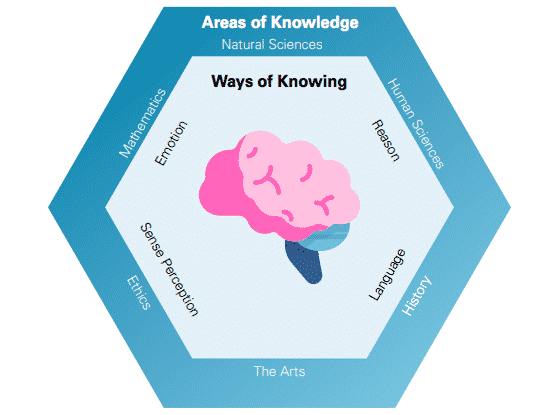Pt. 2 – Types of Knowledge: Shared and Personal
Divide and conquer!
One good way to understand something difficult is to break it up. In ToK we are asked to look knowledge and try to understand how knowing works. One way the IB suggest we think about this is by breaking up knowledge in to categories called ‘shared’ and ‘personal’. You can tell the two types apart by how they are expressed. When someone is using shared knowledge they say ‘we know because’. When they are using personal knowledge they use the phrase ‘I know because’. There is a bit more to it than this though!
Shared knowledge
The best way to tell if knowledge is shared is to look at whether other people can check and correct it. Let’s take one of your IB subjects as an example. Ask your physics teacher what the fastest thing in the universe is and they will likely tell you that light moves faster than anything else. It moves at an impressive 1080 million kilometres every hour through a vacuum! But suppose a study showed something moving faster than light. What would happen?
Other scientists would try to replicate the study, and check it themselves. If they found that indeed, something could move faster than light, what would happen? Our scientific knowledge would have to be corrected. This example shows that science as an academic subject is a matter of shared knowledge. You can use to find out whether knowledge is shared or personal – shared knowledge can always be checked and corrected by the community.
https://lanterna.com/wp-content/uploads/2020/03/468-x-60_BannerAD_OPT-v3-1024×131.jpg
Personal knowledge
Personal knowledge is different. Feelings are an example of personal knowledge. Emotional statements can’t be right or wrong, like scientific statements can. Personal knowledge can’t be checked for accuracy or corrected in the same way shared knowledge can.
Skills and abilities also count as personal knowledge. Imagine trying to describe to someone what it is like to ride a bike. You peddle, of course, and the wind rushes past you as you go fast. But does this really describe what it is like to ride a bike?
Knowing such things is personal knowledge – you have to experience it yourself to know it at all. Personal knowledge can be really hard to communicate. The same is true for other skills, like sports, cooking and so on.
The interaction
It is true that knowledge can be understood by breaking it into ‘shared’ and ‘personal’. However, the two types of categories do interact. Shared knowledge can have a strong impact on how we view the world. Somebody who studies economics might view their weekly shop quite differently because of their academic knowledge. Their personal knowledge had been affected by the shared knowledge they had picked up on in class. We can view this relationship as an intersection, where the two types of knowledge meet.
Hopefully you now feel comfortable with the ideas of personal and shared knowledge. You should feel satisfied that you can identify which kinds of knowledge are being described. Make sure you make use of this in essays and presentations to show that you really know your stuff!
https://lanterna.com/wp-content/uploads/2019/04/IB-TOK-Guide-Download-Now-e1567155976156.png
Don’t forget to check out next part on mastering Theory of Knowledge below!
Read Part 3: Knowledge questions and knowledge claims
